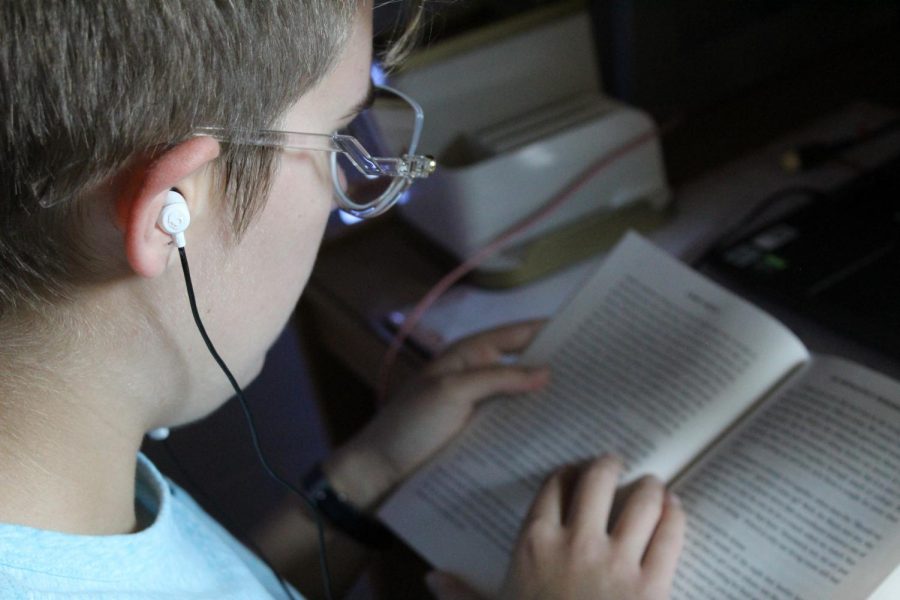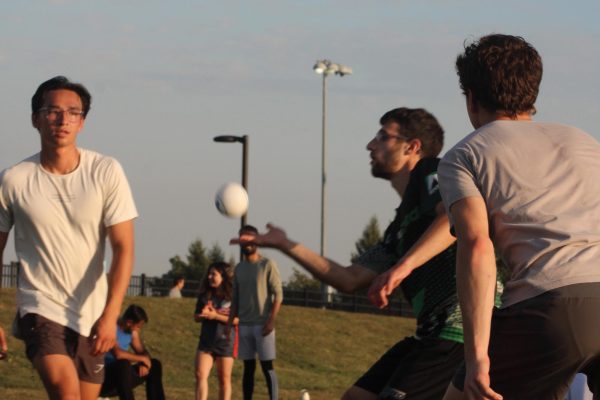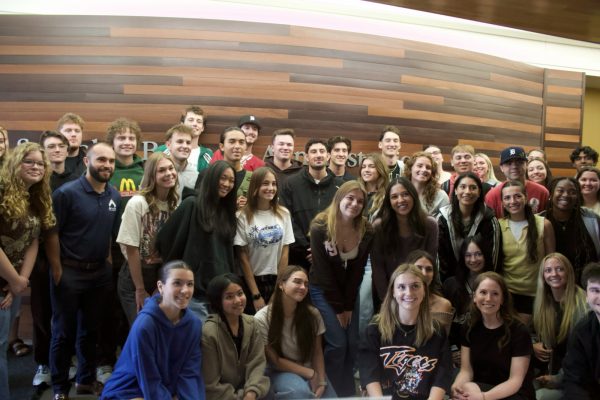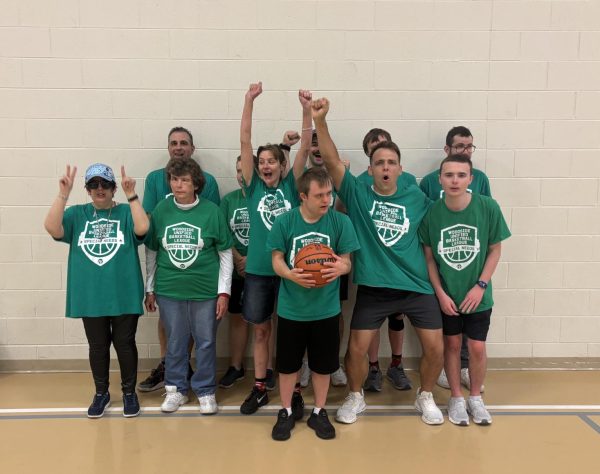Navigating college and autism
Students with autism have additional challenges to navigate in college. Senior Reporter D’Juanna Lester shares her experience.
As someone who was diagnosed with autism halfway through high school, my lack of knowledge — as well as many of my fears — have transferred to college. When I was diagnosed, there were a lot of things I didn’t know about myself, things that I just thought were normal that weren’t, even in college. Being around my neurotypical classmates has shown me that my perspective is drastically different, and that’s ok.
One of the biggest things I’ve had to navigate was social interaction. Being autistic, on top of transferring from Columbia College during a pandemic, I often wondered if I’d get the chance to make many friends before graduation. From joining Oakland University Student Congress (OUSC) and Creative Writing Club, I found new, easier ways to interact with my peers. I’m more open with people and I don’t find myself masking as I did in high school.
There’s no “old me” that I have to hide from people. Being in college is all about new experiences and discovering what you want for yourself, and I feel like I’m doing that. Through being in diverse clubs, I’m able to find people who share the same interests as me.
A big thing for me is my major. When you’re autistic, you find yourself switching special interests often. Special interests are like obsessions — something you can’t see yourself without. It’s more intense than a hobby, but something we have a passionate interest for.
I’ve found myself switching them, which often led to me questioning what I wanted to do in terms of life after graduation. I have many different special interests, i.e. history, theater and writing. It’s hard to decide on something, not knowing how interested I’ll still be in it further down the line. Consequently, I’ve changed my major several times, before settling on creative writing. Now, I can bring my special interests into what I want as a career path.
The hardest thing for me to navigate is burnout. Burnout is a state of physical or emotional stress that makes it difficult to perform tasks. Its longevity depends on the situation. Sometimes my burnout lasts a few hours and other times, a few days or even weeks.
When I’m burnt out, I physically can’t socialize, so I shut myself away from people. I lose my sense of creativity and find myself scrolling through my phone or listening to music for hours to find a sense of escapism. This especially happens when I feel helpless.
For example, on July 6 the FDA re-legalized the use of GEDs on the autistic community. GEDs are an unethical shock device used to torture people in order to make them “normal.” I felt helpless — like we were the only ones who cared about helping ourselves. Not knowing many autistic people personally, no one would understand how I felt. So I shut down, only talked to a few people and lost all ability to think about anything else for the next week.
College can be overwhelming when I’m in a burnout state. Getting through school while trying to maintain some social standing can be taxing. Despite burnout and the many challenges that come with it, I know I can eventually get out of it. Even though college is very difficult at times, I wouldn’t change anything.







Jordan Tolbert • Sep 5, 2021 at 6:04 PM
This is so well written and so well said! Thank you for sharing!(:
Heidi A Lyons • Sep 2, 2021 at 7:09 AM
Thank you for sharing. I have learned a few things that I didn’t kow. Thanks for writing this.
Janell Townsend • Sep 1, 2021 at 11:54 AM
Thank you so much D’Juanna for sharing your story! Being the Mom of a young adult on the spectrum has helped me be a better professor and a better person. I know how hard you work to accomplish things that others take for granted. The contributions you will make to the world are incalculable and I know the faculty are proud to have the opportunity to help you find and reach your goals. You are truly inspiring!